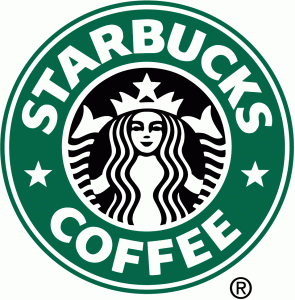Seattle-based, multi-billion dollar coffee chain, Starbucks, states that they purchase the most Fairtrade coffee beans in North America. Fairtrade coffee beans are marked with a stamp of approval per say that guarantees farmers in developing countries, where the majority of coffee beans are grown, a prime market value. This is in place because the beans could easily be purchased for ridiculously cheap prices from poor farmers in these regions.
Claims from Oxfam, a development charity, states that the company is in fact underpaying Ethiopian coffee farmers by $90 million a year, however. Analyst Douglas Holt at the Said Business School at Oxford University considers Starbucks to be just as unethical as Nike, a company famous for their sweatshops in impoverished Asian countries. Starbucks claims they make up for this loss by using a system called CAFE (Coffee and Farmer Equity) which provides benefits for farmers in other ways such as microfinance loans (loans given to a small businesses that do not have a bank available) and technical support as an alternative to buying fair-trade beans. The company also declares that they do not use the Fairtrade beans in all places because they disagree with their approach in certain countries and feel CAFE is a better alternative.
Starbucks could be trying to find a way around the issue of buying fair-trade coffee beans with their CAFE program and at the same time saving their organization a substantial amount of money. If Starbucks proved to be robbing Ethiopian farmers of this much money it could have a large impact on their revenues worldwide because the consumer will not want to buy beans from a company that has poor ethics such as the previously mentioned.
http://www.economist.com/node/8355026


Right on, Jeremy. Not to mention the dubious ethical position of failing to pay corporate taxes in the countries they’ve bombarded with this watery guff. Organic coffee cooperatives would love contracts from these corporate renegades. Starbucks joins companies like Nestle, and, as you say, Nike, to destabilize global economies. I wonder how many days, weeks, months it would take to dent the gold-lined pockets of these corps if people could get it together to just stop buying. Just stop. Wot about that, eh?
Starbucks has made efforts to integrate social responsibility and ethical practices into its business model. They’ve focused on various initiatives, including ethical sourcing of coffee beans, commitments to environmental sustainability, and employee welfare programs.